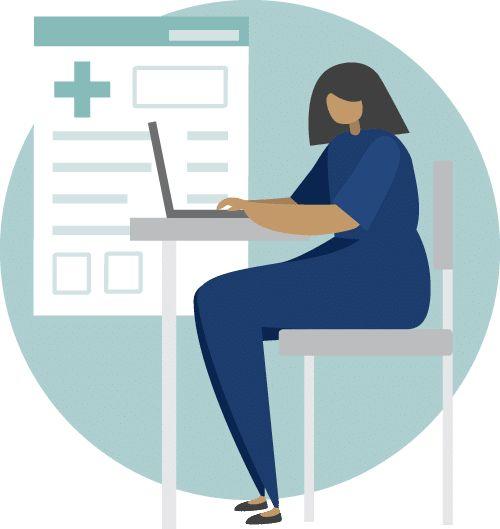Virtual Scribes Improving Patient Care

Introduction
Patient care is at the heart of every healthcare practice. Yet, physicians often find themselves overwhelmed by documentation requirements that take time away from direct patient interaction. Virtual scribes have emerged as a solution, enabling doctors to shift their focus back to patients. By managing medical records in real time, virtual scribes enhance efficiency, reduce errors, and most importantly, improve the quality of care patients receive.
What Are Virtual Scribes?
Virtual scribes are trained medical professionals who join consultations remotely via secure technology. They listen to physician-patient interactions and document the visit into the electronic health record (EHR). Unlike in-person scribes, they work from a remote location, offering greater flexibility and scalability.
How Virtual Scribes Improve Patient Care
-
More Physician Attention: Doctors can give full attention to patients rather than multitasking with note-taking.
-
Faster Appointments: With documentation handled in real time, appointments move smoothly without delays.
-
Accurate Records: Precise notes help in making better clinical decisions.
-
Reduced Burnout: Happier physicians can dedicate more energy to patient care.
-
Better Communication: With physicians less distracted, patients feel more heard and valued.
Table: Patient Experience With and Without Virtual Scribes
| Factor | Without Virtual Scribe | With Virtual Scribe |
|---|---|---|
| Doctor’s Focus | Split between patient & notes | 100% focused on patient |
| Appointment Length | Often extended | More efficient |
| Patient Satisfaction | Lower | Higher |
| Documentation Accuracy | Risk of missing details | High accuracy |
| Physician Burnout | Common | Reduced |
Virtual Scribes and the Patient-Physician Relationship
Patients want to feel that their doctor is listening. With virtual scribes handling EHR updates, doctors can maintain eye contact, engage in meaningful conversations, and build trust. This strengthens the patient-physician relationship, which is a cornerstone of high-quality care.
Clinical Outcomes with Virtual Scribes
-
Improved Follow-Up Care: Accurate notes ensure patients receive the right follow-up treatments.
-
Fewer Errors: Reduced risk of misdocumentation improves safety.
-
Timely Prescriptions: With faster documentation, prescriptions and referrals are processed quickly.
-
Better Chronic Disease Management: Consistent, detailed records help track patient progress effectively.
Case Example: Primary Care Physician
A primary care doctor adopted virtual scribes to reduce after-hours charting. Within a month, patients reported more satisfaction during visits, as the doctor was able to spend more time listening and explaining treatment plans. The practice also noted fewer errors in patient charts and quicker turnaround for lab requests.
Why Patients Benefit from Virtual Scribes Services?
-
Shorter Wait Times: Doctors can see more patients daily.
-
Clearer Instructions: Physicians can focus on explaining treatments.
-
Personalized Care: Full attention creates a better experience.
-
Trust and Confidence: Patients feel valued when doctors engage directly with them.
The Future of Patient Care with Virtual Scribes
As healthcare continues to adopt technology, virtual scribes will play a bigger role in improving care. Combining scribe services with AI tools will further streamline processes, allowing even more time for patient-focused interactions. The future points toward more efficient, patient-centered healthcare with scribes as an essential component.
Conclusion
Virtual scribes are not just an administrative solution—they are a direct contributor to better patient care. By removing the distraction of documentation, they empower physicians to engage fully with patients, improve accuracy, and deliver higher-quality outcomes. For practices committed to excellence, adopting virtual scribes is a step toward a more patient-centered future.
FAQs
Q1. How do virtual scribes affect patient satisfaction?
They improve satisfaction by allowing doctors to give patients undivided attention.
Q2. Do virtual scribes make visits shorter?
Yes, documentation in real time reduces appointment length.
Q3. Are virtual scribes secure for patient information?
Yes, they work under strict HIPAA-compliant protocols.
Q4. Do patients like having scribes involved?
Most patients appreciate it, as it allows doctors to focus more on them.
Q5. Can virtual scribes help with chronic condition management?
Yes, accurate records and timely documentation make managing long-term conditions more effective.
- Art
- Causes
- Crafts
- Dance
- Drinks
- Film
- Fitness
- Food
- Jogos
- Gardening
- Health
- Início
- Literature
- Music
- Networking
- Outro
- Party
- Religion
- Shopping
- Sports
- Theater
- Wellness


